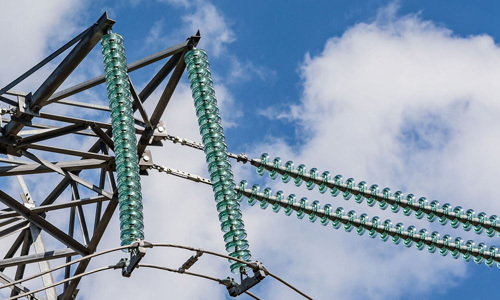Why Post Insulators are Essential for Electrical Safety
2025-07-20
Why Post Insulators are Essential for Electrical Safety
Table of Contents
Introduction to Post Insulators
Understanding Electrical Insulators
The Role of Post Insulators in Electrical Systems
Types of Post Insulators
Benefits of Using Post Insulators for Electrical Safety
Material Quality and Performance of Post Insulators
Installation and Maintenance of Post Insulator
Why Post Insulators are Essential for Electrical Safety
Table of Contents
- Introduction to Post Insulators
- Understanding Electrical Insulators
- The Role of Post Insulators in Electrical Systems
- Types of Post Insulators
- Benefits of Using Post Insulators for Electrical Safety
- Material Quality and Performance of Post Insulators
- Installation and Maintenance of Post Insulators
- Conclusion
- Frequently Asked Questions
Introduction to Post Insulators
Post insulators are crucial components in electrical power systems, serving as key barriers between live electrical conductors and supporting structures. They play an essential role in ensuring electrical safety by preventing unwanted current flow and protecting both personnel and equipment from electrical faults. This article delves deep into the significance of post insulators, discussing their functions, various types, benefits, and the importance of using high-quality materials for optimal performance.
Understanding Electrical Insulators
Electrical insulators are materials that do not conduct electricity. Their primary function is to separate conductive parts of electrical equipment from non-conductive parts, preventing short circuits and electrical failures. Insulators are made from various materials, with each type offering unique properties that make them suitable for specific applications.
The Importance of Insulation in Electrical Systems
Effective insulation in electrical systems is paramount. It ensures the safety of workers and the general public by minimizing the risk of electrical shocks and fires. Moreover, proper insulation helps maintain the efficiency of electrical systems, preventing energy losses that can result from leaking currents.
The Role of Post Insulators in Electrical Systems
Post insulators serve several critical functions in electrical systems:
1. Support for Conductors
Post insulators are designed to hold electrical conductors securely in place, preventing them from sagging or coming into contact with other conductors or structures. This support is vital for maintaining the integrity and safety of power transmission systems.
2. Electrical Insulation
By providing a barrier between live electrical parts and the physical environment, post insulators prevent inadvertent current flow. This insulation is crucial for protecting both equipment and personnel from electrical hazards.
3. Environmental Protection
Post insulators are engineered to withstand a range of environmental conditions, including moisture, temperature fluctuations, and pollution. This resilience ensures that they maintain their insulating properties over time, contributing to the long-term safety and reliability of electrical systems.
Types of Post Insulators
There are several types of post insulators, each designed for specific applications:
1. Porcelain Post Insulators
Porcelain post insulators are widely used due to their excellent mechanical strength and resistance to weathering. They are often found in high-voltage applications and are known for their durability.
2. Polymer Post Insulators
These insulators are made from composite materials that offer lightweight and high-performance attributes. Polymer post insulators are gaining popularity due to their superior resistance to pollution and ability to withstand environmental stress.
3. Glass Post Insulators
Glass post insulators provide high transparency and are effective in transmitting voltage. They are less common than porcelain and polymer options but can be found in specific applications where visibility is essential.
Benefits of Using Post Insulators for Electrical Safety
Utilizing post insulators in electrical installations offers numerous advantages, including:
1. Enhanced Safety
The primary benefit of post insulators is their ability to enhance safety by preventing electrical shocks and fires. This protection is vital for both operational personnel and equipment.
2. Reliability and Performance
High-quality post insulators contribute to the overall reliability of electrical systems. By ensuring that conductors are well-supported and insulated, they help minimize downtime caused by electrical faults.
3. Cost-Effectiveness
Investing in quality post insulators can lead to long-term savings. By reducing failures and maintenance costs, they provide a cost-effective solution for electrical safety.
4. Environmental Compatibility
Modern post insulators are designed with environmental concerns in mind. They are often made from materials that are resistant to pollution and degradation, ensuring their effectiveness over time.
Material Quality and Performance of Post Insulators
The performance of post insulators heavily relies on the materials used in their construction. High-quality materials ensure durability, mechanical strength, and resistance to environmental factors.
1. Evaluating Material Properties
When selecting post insulators, it is essential to consider the following properties:
- **Dielectric Strength**: The ability of a material to resist electrical breakdown.
- **Mechanical Strength**: The capacity of the insulator to withstand physical stress and environmental factors.
- **Thermal Resistance**: The ability to perform well under varying temperature conditions.
2. Standards and Certifications
Ensuring that post insulators meet industry standards and certifications can significantly impact their performance. Quality manufacturers adhere to international standards, promoting safety and reliability in electrical systems.
Installation and Maintenance of Post Insulators
Proper installation and maintenance of post insulators are crucial for ensuring their effectiveness in electrical safety.
1. Installation Best Practices
- **Follow Manufacturer Guidelines**: Adhering to the manufacturer's specifications ensures optimal installation.
- **Proper Alignment**: Ensuring that post insulators are correctly aligned helps maintain their structural integrity.
2. Regular Maintenance Checks
Conducting routine inspections and maintenance checks can help identify potential issues before they escalate. This proactive approach is essential for maintaining the safety and reliability of electrical systems.
Conclusion
Post insulators are indispensable components in the realm of electrical safety. Their ability to provide mechanical support, electrical insulation, and environmental protection underscores their significance in ensuring safe and reliable electrical systems. By understanding the various types, benefits, and material considerations associated with post insulators, stakeholders can make informed decisions that enhance safety and performance. Investing in high-quality post insulators not only protects individuals and equipment but also promotes the overall efficiency of electrical systems.
Frequently Asked Questions
1. What is a post insulator?
A post insulator is a type of electrical insulator that supports and insulates electrical conductors from supporting structures, preventing electrical faults.
2. Why are post insulators important for electrical systems?
They provide essential electrical insulation, support for conductors, and protection against environmental factors, enhancing overall safety and reliability.
3. What materials are commonly used in post insulators?
Common materials include porcelain, polymer composites, and glass, each offering unique benefits for specific applications.
4. How often should post insulators be inspected?
Regular inspections should be conducted at least once a year, or more frequently in harsh environments, to identify potential issues.
5. What are the consequences of using low-quality post insulators?
Using low-quality post insulators can lead to electrical failures, increased maintenance costs, and safety hazards, ultimately compromising the reliability of electrical systems.
Key words:
Related News
Customers from several countries visited our factory for inspection.
Today, our company welcomed important clients from many countries to visit and inspect our factory. This is a significant milestone for our company's global reach, and a moment to showcase our strength and achievements. We are deeply honored and are full of confidence for the future.
2025-04-27
What are the characteristics of glass insulators?
After vacuum injection, the continuous pulling and extrusion of epoxy glass pulling rods is formed after the glass fibers are impregnated with epoxy resin and cured. The insulators used in overhead lines commonly include pin insulators, disc insulators, suspension porcelain bottle insulators, porcelain cross arms, rod insulators, and tension insulators, etc.
2024-05-22
In one minute, let you understand glass insulators.
Glass insulators are widely used in power systems due to their excellent electrical performance, corrosion resistance, and mechanical strength. Next, let's take a detailed look at their advantages.
2024-05-22



















